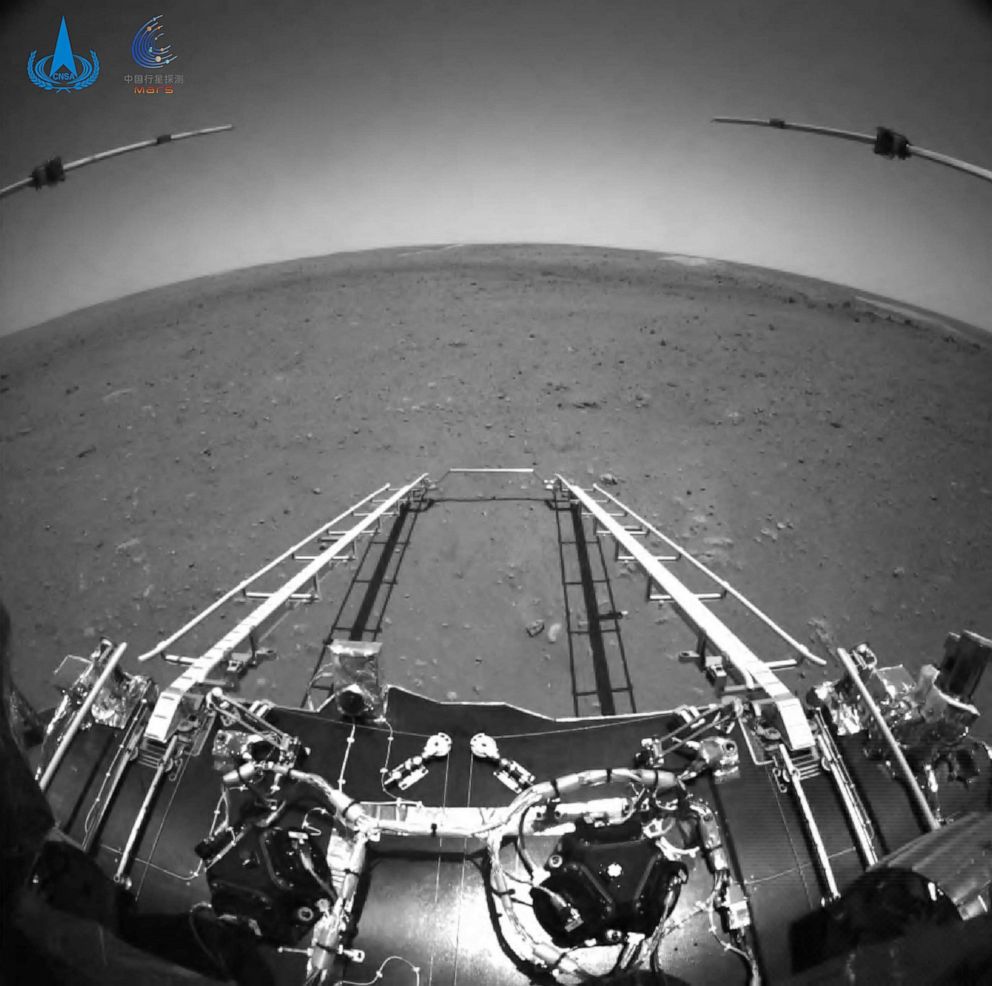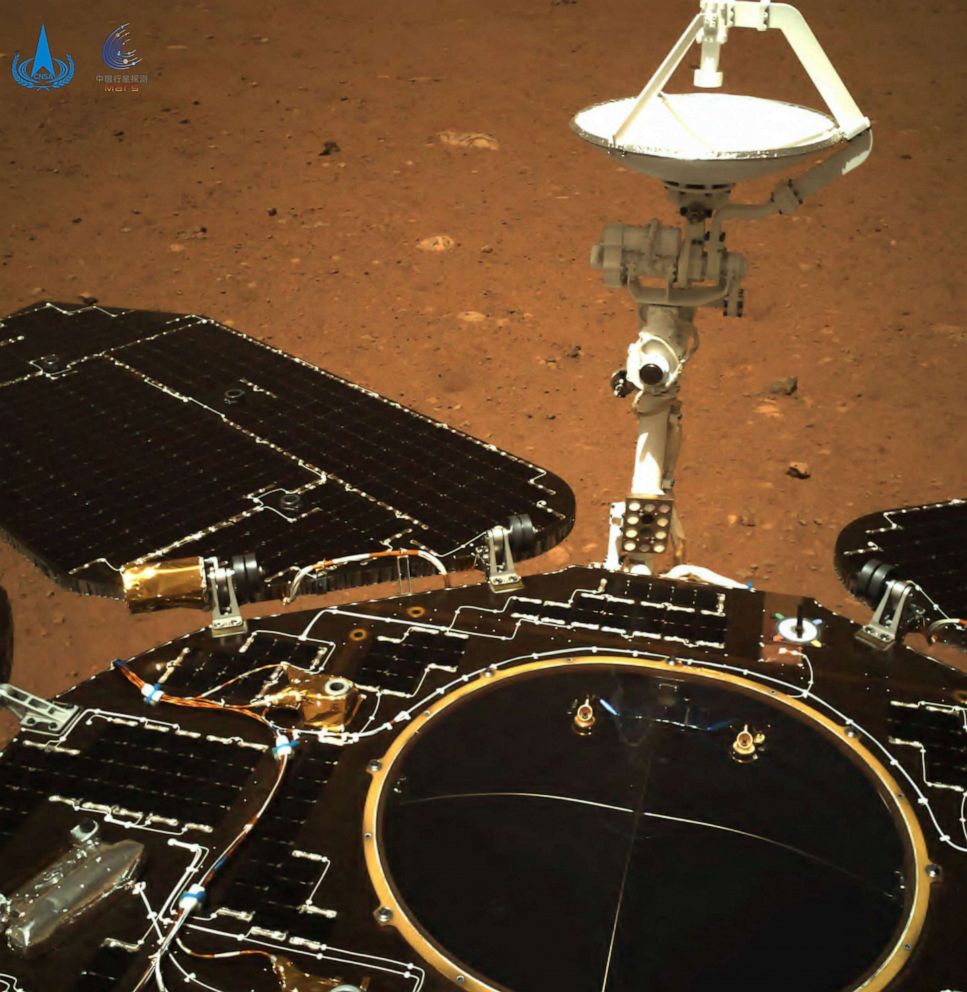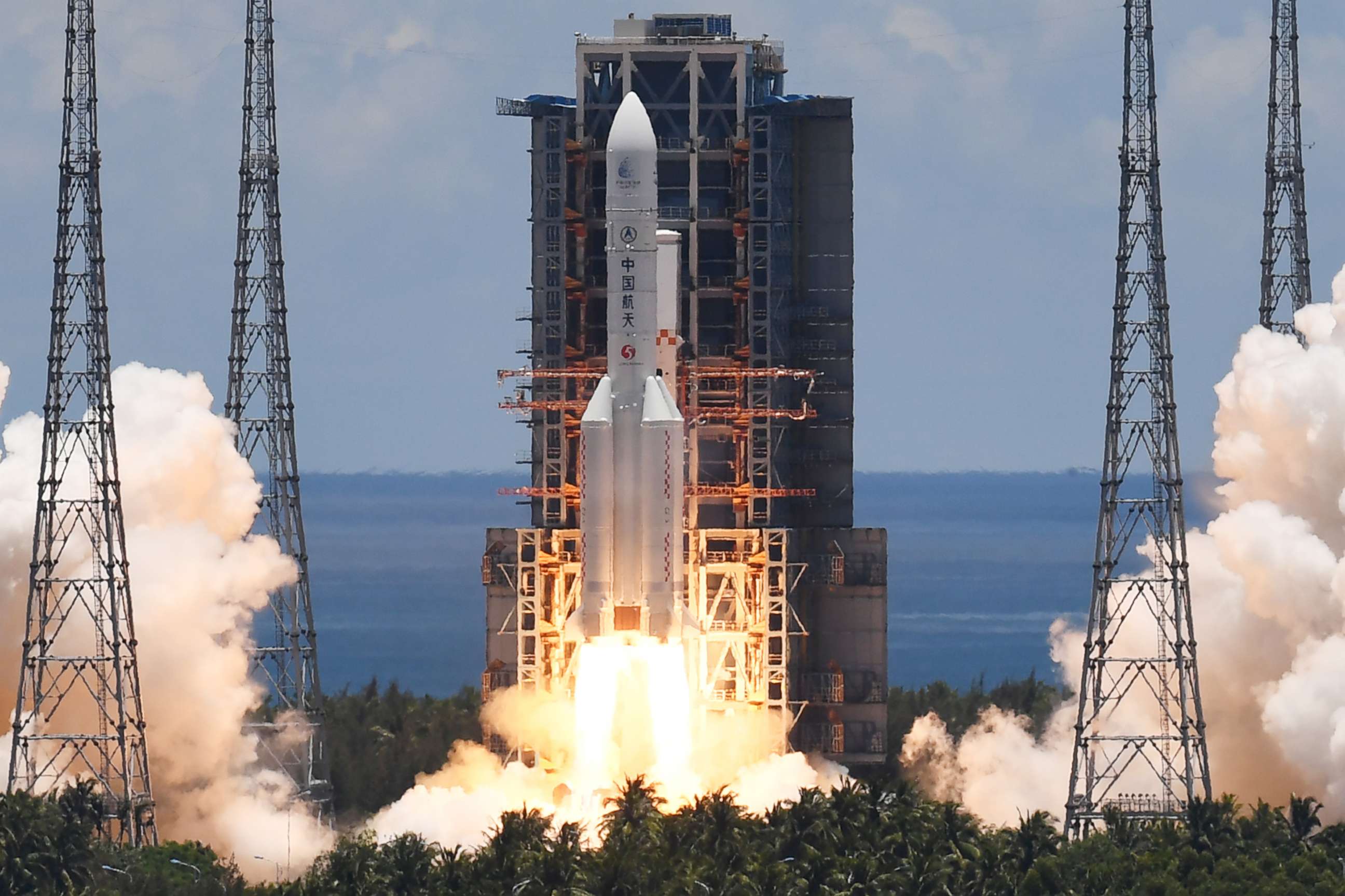China unveils ambitious 'roadmap of human Mars exploration'
China also has plans for building a base on the red planet.
China unveiled ambitious plans to send humans to Mars and build a base on the red planet at a recent space exploration conference.
Wang Xiaojun, the head of the state-run China Academy of Launch Vehicle Technology, shared a "roadmap of human Mars exploration" during a virtual lecture at the Global Space Exploration Conference held in Russia this week. The conference was organized by Russia's Roscosmos space agency and the International Astronautical Federation to mark the 60th anniversary of Yuri Gagarin’s spaceflight. Wang's talk was posted online.
The new plans for human exploration of Mars come shortly after China's success with its Tianwen-1 mission, which reached Mars earlier this year and landed its rover last month, making China one of only three nations to successfully land a spacecraft on Mars.

Like other nations, China "regards Mars exploration as the preferred destination for deep space exploration," Wang said.
Wang's three-step plan for human Mars exploration includes robotic exploration, initial human exploration and finally "routine human explorations."
As part of the plan, Wang unveiled that China hopes to build a base on Mars and the development of a "large-scale Earth to Mars transportation fleet."
He concluded his remarks by calling for global cooperation in the field of deep space exploration.
"We are willing to join hands with our counterparts and partners all over the world, to realize the dream of mankind going to deep space and walking on Mars," he said.

Reuters reported Thursday that China's crewed launches to Mars are planned for 2033, 2035, 2037, 2041 and beyond, a timetable that was also published by the Chinese Communist Party's English-language newspaper Global Times.
China has recently ramped up its efforts to explore deep space, launching its ambitious Tianwen-1 Mars mission last July just days before the U.S. launched its Perseverance rover to the red planet. China's successful landing on Mars was no easy feat given that only about 50% of all previous Mars landing attempts have succeeded.

Moreover, China launched three astronauts to the country’s new space station just last week as it emerges as a major player in the new space race. Chinese President Xi Jinping on Wednesday spoke with the astronauts, who are slated to stay aboard for three months, calling the construction of China's own space station a "milestone" for the nation's space industry.




